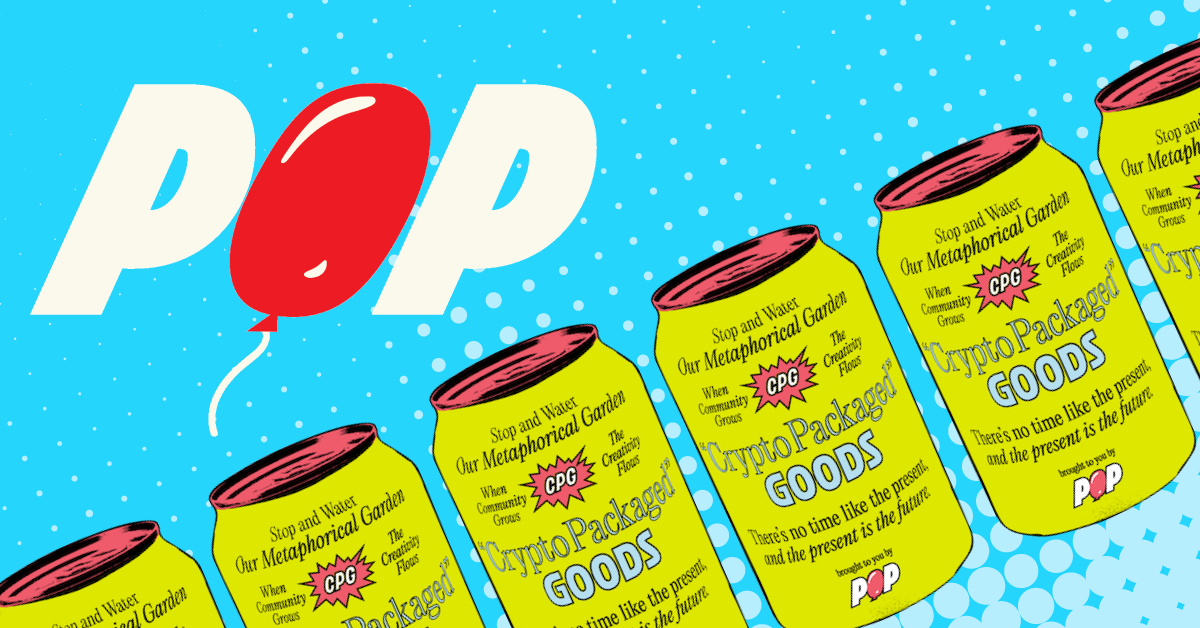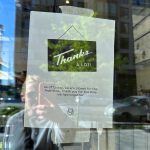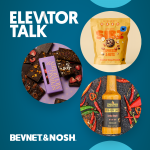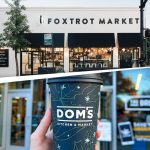Club CPG Creates Incubator Program for Web3-Integrated Startups

Club CPG, a digital company focused on bringing web3 strategies to the consumer sector, is looking to more closely mentor a new generation of tech-minded startups with its two latest projects: The Pop Incubator and Builder’s Club.
The new programs are a part of Club CPG’s latest extension, Pop, a token-gated web3 community accessible exclusively to holders of its 2,777 utility NFTs.
According to Raffaela Rein, head of incubator for Club CPG, Builder’s Club is a year-round program in which NFT holders have access to professional mentorship from individuals working in web3 and CPG, regular online seminars and workshops, investor pitching sessions and feedback hours, tech toolkits, a community showcase and more.
Meanwhile, the Pop Incubator is a more hands-on program that will select 5 to 10 projects per three-to-six month cohort. Applicants must be Pop token holders, have annual recurring revenue under $250,000, and have a web3 project that will be beneficial to the CPG space – which could range from software development to food and beverage brands to NFT collections and more. Selected projects will receive between $15,000 and $50,000 in non-equity financing.
While in certain regards the Pop Incubator will function like a typical brand incubator program – offering hands-on mentorship, networking, promotion and a demo day for prospective investors – Rein said the program also aims to tap into the web3 ethos of community by having participants receive feedback from the broader Builder’s Club group as well.
“It’s really a community-driven incubator, and I think that is what is so different from any incubator out there,” Rein said. “We have a community that needs those products, that uses those products, and ideally the first 1,000 customers for each startup should come from out of the Club CPG community.”
Club CPG was founded last year by venture capitalists Jaime Schmidt and Chris Cantino with the intent to create an online community of CPG professionals interested in web3 technologies like NFTs, blockchain and cryptocurrencies. The company’s first platform, Crypto Packaged Goods, is primarily based around a token-gated community only accessible by the holders of one of 300 exclusive NFTs. Members have access to a community chat channel, exclusive speaker events, consulting and more.
The company introduced Pop this Spring with a new NFT drop as a means to bring in new members without harming the value of the original tokens, which have now been rebranded as “Genesis” tokens and provide holders additional benefits like speaking and content creation opportunities and access to support the incubator steering committee. It was through the Pop drop that Rein, the founder and manager director of web3 venture builder WildWildVentures, first became involved in the company.
“I think it had always been the idea to really be a group of builders, because that’s what everybody has in common,” she said. “And the idea [for Pop] was to widen the net and to … bring new builders into the community and then use that money that comes in from the NFTs to fund the incubator.”
For Rein, the Pop platform reflects another step forward in how web3 projects can expand beyond speculation and focus on utility and application for brands and businesses.
“I think a lot of people that were just [in Club CPG] for the speculation or for short-term gains have left, as they have in many web3 communities,” she said. “Now we see more people that are really building for the long-term, are really interested for the long-term. I think why this whole business approach that we’re having, especially for Pop holders with the Club and Incubator, is really appealing is because it’s not something that is just for the next hype cycle or that isn’t really useful right now. It’s really something we can build on for the long-term.”
While applications for the Pop Incubator are now closed, Rein hopes the program will be the first of many. The incubator, she said, received over 300 applicants and those who are not selected will be able to apply again once the second cohort begins. The selected participants will be announced on September 13 and the program will begin on September 19.














